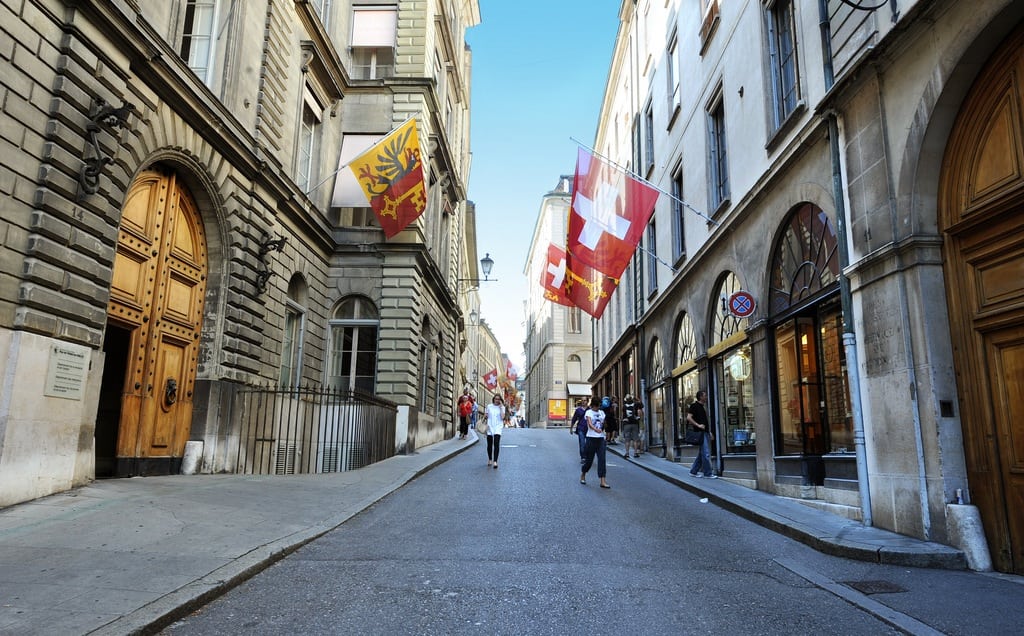The strength of the Swiss franc is hurting European tourism to Switzerland

Skift Take
The Swiss tourism sector was again badly hit in summer largely due to the strong Swiss franc. New figures show half a million fewer hotel overnight stays compared with the same period in 2011, mainly due to a drop in European visitors. Between May and October of this year, 19.3 million overnight tourist stays in hotels were registered, a fall of 2.5 per cent, or 499,000 fewer overnight stays. May and October were the best months of the season and July the worst (down 7.2 per cent), according to the Federal Statistics Office report released on Wednesday.
Ten out of 13 tourist regions had a worse summer season than the year before. Graubunden, the Bernese Oberland, Ticino and Lake Geneva lost the most tourist visitors, while Zurich, Fribourg and Valais saw positive increases. The drop was felt most among foreign visitors. Over the six-month period there were 10.8 million overnight stays by foreigners (down 2.9 per cent) compared with 8.5 million for Swiss tourists (down 2.1 per cent).
The strong franc kept away many guests from Switzerland's traditional European markets - 8.1 per cent fewer overnights overall compared with 2011. The fall was largest among German (318,000 fewer overnights or down 11 per cent), British (-83,000 or -9.6 per cent), Dutch (-80,000 or -17 per cent) and French visitors (-60,000 or -8.6 per cent). One exception was Russia, which saw an increase of 27,000 overnight stays, or +12 per cent.
As in previous years, visitors from Asia have partly compensated. Switzerland was a top destination for the Chinese (+102,000 visitors or +25 per cent), as well as visitors from the Gulf states (+83,000 or +28 per cent) and Japan (+26,000 or +6.7 per cent). And this year the number of visitors from the United States topped one million (+2.6 per cent). Despite the continued downward trend for the summer period, bookings picked up in October to 2.6 million overnight stays, a 1.3 per cent increase compared with October 2011, shared equally between foreign and Swiss visitors.
Glimmer of hope?
Looking ahead, some economists can see a glimmer of hope on the horizon. The BAK Basel research institute announced in October that while the decline in tourism figures should continue into 2013, it may start reversing later in the year. The institute said it expected a drop of 0.9 per cent in hotel overnights in the upcoming winter season, which runs from November to April.
Stays by foreign tourists are likely to decline by 1.8 per cent, but this will be partly compensated by an increase in the number of Swiss tourists. Analysts base their optimism on an expected recovery in the eurozone and an easing of the currency situation. It was also predicted that the number of Asian visitors would continue to grow. A graph on the BAK Basel report shows that hotel overnights in summer hit a trough in 1996, and after recovering steadily until 2001, dropped even further in 2003, but then rose again steadily until 2008. They have declined since 2010.
The graph predicts that by 2015 the number of overnights by domestic and foreign tourists taken together will be just below the 2010 level. In the winter season, overnights peaked in 2008-09 and dropped sharply the following year. The graph shows that the number of domestic winter tourists has been rising slightly since then, while the number of foreign visitors has continued to decline.
For any query with respect to this article or any other content requirement, please contact Editor at htsyndication@hindustantimes.com. © EturboNews ,Inc Provided by Syndigate.info an Albawaba.com company. ![]()




